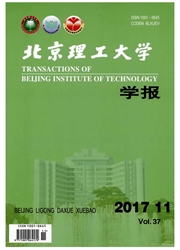

 中文摘要:
中文摘要:
为增强自适应后的声学模型的鉴别能力,提出了一种基于最大互信息(MMI)的鉴别性最大后验概率线性回归(MMI-DMAPLR)说话人自适应方法.将最大互信息准则和最大后验概率(MAP)准则相结合,设计了一个新的目标函数来估计基于线性变换的自适应方法中的变换参数,在最大后验概率估计中加入了鉴别性.大词汇量连续语音识别的实验结果表明,新方法在增强声学模型与测试数据的匹配性的同时,可以有效提高声学模型的鉴别能力,在少量自适应数据的情况下,其性能比最大后验概率线性回归(MAPLR)相对提高4.8%.
 英文摘要:
英文摘要:
In order to increase the discriminative capability of the adapted acoustic model,the maximum mutual information based discriminative maximum a posteriori linear regression(MMI-DMAPLR) adaptation method was proposed.Combining the maximum mutual information criterion with maximum a posteriori(MAP)criterion,a new objective function was designed to estimate the transform parameters of adaptation method based on the linear transformation,to increase the discriminative capability in maximum a posteriori estimation.The experimental results in large vocabulary continuous recognition show that the proposed method can both enhance the match degree between the acoustic model and the test data and the discriminative power of acoustic model.Compared with maximum a posteriori linear regression(MAPLR),the proposed method can obtain 4.8%relative reduction in word error rate when the amount of data is limited.
 同期刊论文项目
同期刊论文项目
 同项目期刊论文
同项目期刊论文
 A Comparative Study on Selecting Acoustic Modeling Units in Deep Neural Networks based Large Vocabul
A Comparative Study on Selecting Acoustic Modeling Units in Deep Neural Networks based Large Vocabul A Novel Multichannel Audio Signal Compressing Method Based on Tensor Representation and Decompositio
A Novel Multichannel Audio Signal Compressing Method Based on Tensor Representation and Decompositio Context-based adaptive arithmetic coding in time and frequency domain for the lossless compression o
Context-based adaptive arithmetic coding in time and frequency domain for the lossless compression o Objective and Subjective Investigation on a Novel Method for Digital Reverberator Parameters Estimat
Objective and Subjective Investigation on a Novel Method for Digital Reverberator Parameters Estimat A sound image externalization approach for headphone reproduction by simulating binaural room impuls
A sound image externalization approach for headphone reproduction by simulating binaural room impuls Speech Enhancement Using Robust Generalized Side lobe Canceller with Multi-Channel Post-Filtering in
Speech Enhancement Using Robust Generalized Side lobe Canceller with Multi-Channel Post-Filtering in A Novel Similarity Measure to Induce Semantic Classes and Its Application for Language Model Adaptat
A Novel Similarity Measure to Induce Semantic Classes and Its Application for Language Model Adaptat Multi-resolution time frequency feature and complementary combination for short utterance speaker re
Multi-resolution time frequency feature and complementary combination for short utterance speaker re Acoustic characteristics of stop consontants in fluent reading Chinese Putonghua speech of adult stu
Acoustic characteristics of stop consontants in fluent reading Chinese Putonghua speech of adult stu Auditory frequency-following response: a neurophysiological measure for studying the “cocktail-party
Auditory frequency-following response: a neurophysiological measure for studying the “cocktail-party Adding irrelevant information to the content prime reduces the prime-induced unmasking effect on spe
Adding irrelevant information to the content prime reduces the prime-induced unmasking effect on spe Enhancing the Robustness of the Posterior-Based Confidence Measures Using Entropy Information for Sp
Enhancing the Robustness of the Posterior-Based Confidence Measures Using Entropy Information for Sp Noise Robust Feature Scheme for Automatic Speech Recognition Based on Auditory Perceptual Mechanisms
Noise Robust Feature Scheme for Automatic Speech Recognition Based on Auditory Perceptual Mechanisms 期刊信息
期刊信息
